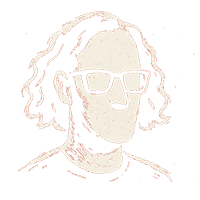In the essay, Dialogue and Organizational Transformation, Glenna Gerard and Linda Teurfs outline the the building blocks of THE TECHNOLOGY OF DIALOGUE, which they suggests consists of:
- Suspension of Judgment
- Identification of Assumptions
- Listening
- Inquiry and Reflection
What makes dialogue different than conversation? According to David Gurteen, “dialogue is a disciplined form of conversation.”
Gurteen says that within dialogue[^1^](#fn1){#fnref1 .footnote-ref role=”doc-noteref”}:
- You prefer a certain position but do not cling to it.
- You are ready to listen to others.
- Your mindset is not one of ‘convincing others that your way is
right' but of asking what you can learn from them.
```text
- It is recognizing that other people's input will help you refine
```text
your own ideas or reveal your misconceptions.
```text
- It is not argument or debate. It is not win-lose. In dialogue all
```text
sides win by coming up with a more appropriate solution than a
single person could ever have. It is win-win.
```ruby
When we first introduced Dialogue-Driven Development, Ryan Allen
[responded with a brief
overview](http://www.robbyonrails.com/articles/2006/08/02/dialogue-driven-development#comment-21737)
of how you might go about defining a *failed project*. His first bullet
was, *"Miscommunication can lead to the implementation of the wrong
solutions."*
It is our opinion that many of the problems that lead to *failed
projects* can be solved through consistent and cooperative discourse.
Much of this relies on each of us taking ownership of our commitment to
encouraging healthy collaboration between developers, clients, and
users.
Wikipedia [currently describes
dialogue](http://en.wikipedia.org/wiki/Dialogue) as, *"a reciprocal
conversation between two or more persons."*
### Question
What are some of the obstacles that you face when interacting with a
diverse set of developers, clients, and users?
------------------------------------------------------------------------
1. ::: {#fn1}
```yaml
[The Discipline of Dialogue by David
Gurteen](http://www.gurteen.com/gurteen/gurteen.nsf/id/km-dialogue)[↩︎](#fnref1){.footnote-back
role="doc-backlink"}
:::

